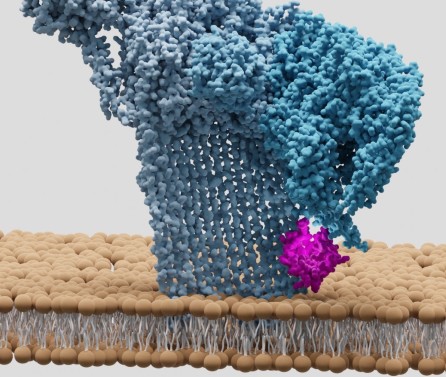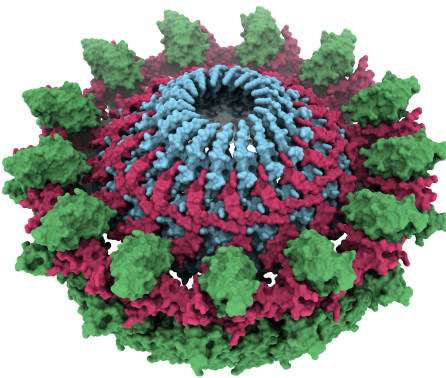BibTex format
@article{Leen:2016:10.1371/journal.ppat.1005379,
author = {Leen, EN and Sorgeloos, F and Correia, S and Chaudhry, Y and Cannac, F and Pastore, C and Xu, Y and Graham, SC and Matthews, SJ and Goodfellow, IG and Curry, S},
doi = {10.1371/journal.ppat.1005379},
journal = {PLOS Pathogens},
title = {A conserved interaction between a C-terminal motif in norovirus VPg and the HEAT-1 domain of eIF4G is essential for translation initiation},
url = {http://dx.doi.org/10.1371/journal.ppat.1005379},
volume = {12},
year = {2016}
}
RIS format (EndNote, RefMan)
TY - JOUR
AB - Translation initiation is a critical early step in the replication cycle of the positive-sense, single-stranded RNA genome of noroviruses, a major cause of gastroenteritis in humans. Norovirus RNA, which has neither a 5´ m7G cap nor an internal ribosome entry site (IRES), adopts an unusual mechanism to initiate protein synthesis that relies on interactions between the VPg protein covalently attached to the 5´-end of the viral RNA and eukaryotic initiation factors (eIFs) in the host cell. For murine norovirus (MNV) we previously showed that VPg binds to the middle fragment of eIF4G (4GM; residues 652-1132). Here we have used pull-down assays, fluorescence anisotropy, and isothermal titration calorimetry (ITC) to demonstrate that a stretch of ~20 amino acids at the C terminus of MNV VPg mediates direct and specific binding to the HEAT-1 domain within the 4GM fragment of eIF4G. Our analysis further reveals that the MNV C terminus binds to eIF4G HEAT-1 via a motif that is conserved in all known noroviruses. Fine mutagenic mapping suggests that the MNV VPg C terminus may interact with eIF4G in a helical conformation. NMR spectroscopy was used to define the VPg binding site on eIF4G HEAT-1, which was confirmed by mutagenesis and binding assays. We have found that this site is non-overlapping with the binding site for eIF4A on eIF4G HEAT-1 by demonstrating that norovirus VPg can form ternary VPg-eIF4G-eIF4A complexes. The functional significance of the VPg-eIF4G interaction was shown by the ability of fusion proteins containing the C-terminal peptide of MNV VPg to inhibit in vitro translation of norovirus RNA but not cap- or IRES-dependent translation. These observations define important structural details of a functional interaction between norovirus VPg and eIF4G and reveal a binding interface that might be exploited as a target for antiviral therapy.
AU - Leen,EN
AU - Sorgeloos,F
AU - Correia,S
AU - Chaudhry,Y
AU - Cannac,F
AU - Pastore,C
AU - Xu,Y
AU - Graham,SC
AU - Matthews,SJ
AU - Goodfellow,IG
AU - Curry,S
DO - 10.1371/journal.ppat.1005379
PY - 2016///
SN - 1553-7366
TI - A conserved interaction between a C-terminal motif in norovirus VPg and the HEAT-1 domain of eIF4G is essential for translation initiation
T2 - PLOS Pathogens
UR - http://dx.doi.org/10.1371/journal.ppat.1005379
UR - http://hdl.handle.net/10044/1/28982
VL - 12
ER -

